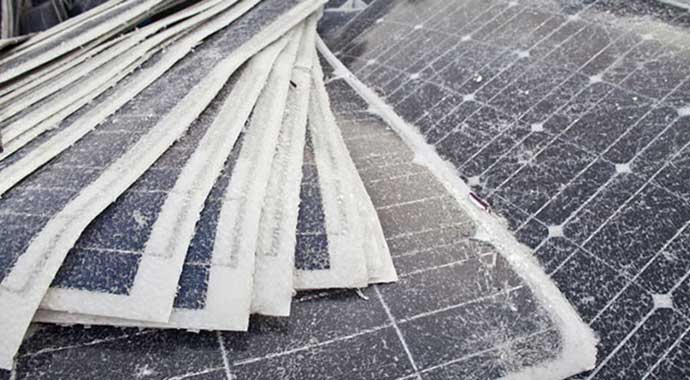 A leading architect of Germany’s “Energiewende” push towards wind and solar over coal, oil, gas and nuclear admits that renewable energy alone is insufficient to maintain reliable supply.
A leading architect of Germany’s “Energiewende” push towards wind and solar over coal, oil, gas and nuclear admits that renewable energy alone is insufficient to maintain reliable supply.
The comments by Peter Altmaier, who served as federal minister for economic affairs and energy from 2018 to 2021, come as Germany remains under a natural gas emergency because of Russia’s war in Ukraine.
“We have to acknowledge that no country in the world is able to provide 100 per cent of energy demand by renewable energies,” Altmaier told a Calgary luncheon hosted by the Haskayne School of Business on Oct. 12.
Germany’s use of renewable energy has increased dramatically in recent years, but the country is still heavily dependent on oil, natural gas and coal.
Between 2010 and 2020, the share of wind and solar in Germany’s energy mix increased by 242 per cent, according to the International Energy Agency (IEA). At the same time, coal’s decreased by 45 per cent, oil by 10 per cent, and natural gas by two per cent.
But that does not tell the whole story. Wind and solar supplied just six per cent of total energy consumed in Germany in 2020, up from just one per cent in 2010. Meanwhile, in 2020 oil and gas supplied 61 per cent of Germany’s total energy demand. That’s up from 55 per cent in 2010 as oil and gas were used to replace coal, which decreased to 16 per cent.
“The challenge today is that even if you expand the capacities of renewable energies, you still will need classical traditional energies like oil and gas and nuclear,” Altmaier said.
“This has become a very controversial issue. We have to find solutions that are affordable and do work in practice … We have to realize that energy transition is not as simple as some people would like.”
 |
| Related Stories |
| The good news: renewable energy sources have gained ground. The bad …
|
| Renewable energy dreams have turned into a nightmare. What now?
|
| The true cost of unreliable renewable energy |
Renewable energy has become increasingly important in Germany’s electrical grid, supplying 49 per cent of power demand in the first half of 2022.
But wind and solar “are not always providing electricity when it is needed,” Altmaier said. Solar panels and turbines produce more power than Germans require in the summer but less than they need in the winter, he said. Natural gas helps balance this volatility.
Germany’s energy mix is much more than its electrical grid, with heavy industry consuming 20 per cent of total energy used in the country – the highest level in Europe, Altmaier said.
As renewable energy grows, more gas will be needed to substitute coal, he said. The question is where that gas will come from now that Russian gas is off the market for Germany.
Russia supplied about 55 per cent of Germany’s natural gas before it invaded Ukraine. But the main pipeline has been shut down since early September. Germany has scrambled to find alternative supply, including signing long-term deals with U.S. liquefied natural gas (LNG) shippers.
Further worsening of the already tense situation cannot be ruled out, with the German government warning companies and private consumers to “expect a considerable increase in gas prices” with winter on the horizon.
Altmaier’s visit to Calgary comes about a month after German Chancellor Olaf Scholz came to Canada seeking a deal on LNG supply.
“As Germany is moving away from Russian energy at warp speed, Canada is our partner of choice,” Scholz said. “We hope that Canadian LNG will play a major role in this.”
But he left without an LNG agreement, with Prime Minister Justin Trudeau reinforcing that “there has never been a strong business case” for terminals on Canada’s East Coast.
While Altmaier declined to comment on the issue directly, he said that “Canada in international relationships has never been a problem, but always part of the solution.” And “people in Germany have confidence that the fossil fuel energy in Canada is produced in a more environmentally friendly way than in most other countries around the world.”
He sees Canada’s opportunity to export not only oil and gas but also hydrogen as world hydrogen markets develop.
“Climate action and energy production are two sides of the same metal,” Altmaier said.
“We can solve it together or we will not solve it at all.”
Deborah Jaremko is director of content for the Canadian Energy Centre, an Alberta government corporation funded in part by taxes paid by industry on carbon emissions.
For interview requests, click here.
The opinions expressed by our columnists and contributors are theirs alone and do not inherently or expressly reflect the views of our publication.
© Troy Media
Troy Media is an editorial content provider to media outlets and its own hosted community news outlets across Canada.


